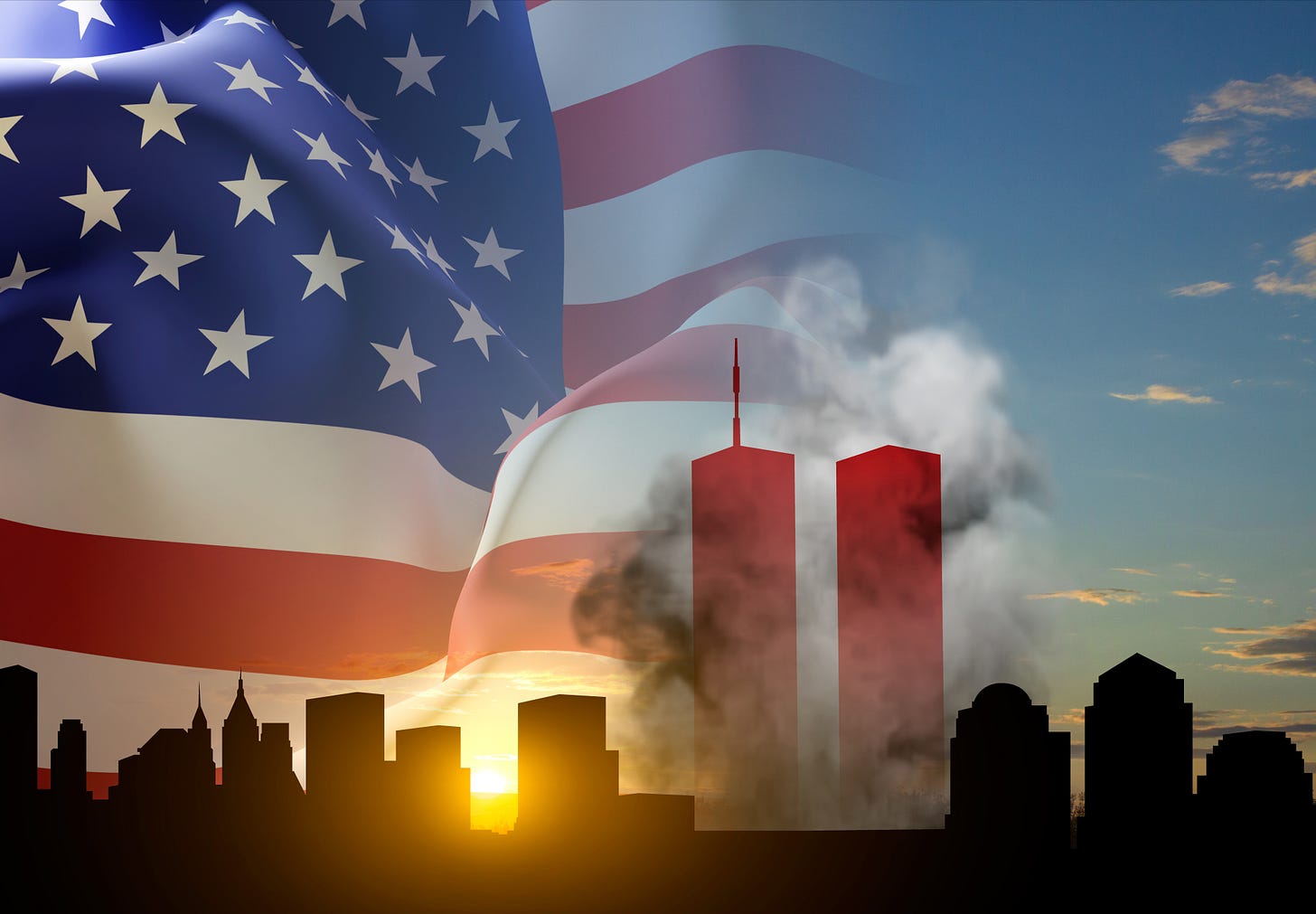As America commemorated the 24th anniversary of the September 11 attacks on Wednesday, the nation's media landscape revealed how profoundly divided the country has become since that tragic day, with news outlets offering starkly different narratives about the attacks' legacy and their impact on American democracy.
The anniversary coverage highlighted a dramatic shift from the unified national response of 2001, when 74 percent of Americans said the nation was united in agreement about core values, to today's fractured reality, where 88 percent describe the country as greatly divided. This transformation has played out prominently across major news organizations, which now approach 9/11 remembrance through increasingly partisan lenses.
Legacy of Unity Lost to Political Polarization
The Washington Post's opinion section featured personal reflections from Pentagon survivors, with contributors emphasizing how the brief post-9/11 unity has given way to deep political schisms. The newspaper's editorial board noted that while Americans still gather annually to honor the 2,977 victims, the shared sense of purpose that emerged after the attacks has evaporated mainly amid contemporary political battles.
NBC News polling analysis revealed a stark contrast between then and now. In December 2001, both major political parties enjoyed net-positive ratings, with the Democratic Party at 48 percent positive and the Republican Party at 56 percent positive. Today, both parties remain underwater in public opinion, with Democrats at 39 percent positive versus 41 percent negative, and Republicans at 32 percent positive against 46 percent negative.
The transformation extends beyond partisan politics to fundamental questions about America's role in the world. New York Times commentary reflected on how the attacks "catalyzed a period of decline that helped turn the United States into the debased, half-crazed fading power we are today". The newspaper's analysis suggested that America's response to 9/11, including prolonged military interventions, contributed to the erosion of democratic institutions at home.
Media Fragmentation Mirrors National Division
The anniversary coverage itself demonstrated how America's media environment has fractured since 2001. CNN's commemorative programming highlighted the ongoing health crisis affecting first responders, with 39 new names added to the FDNY's World Trade Center memorial wall this year alone. The network's approach focused heavily on ongoing victim compensation issues and the need for continued federal funding for the World Trade Center Health Program.
"Slowly, we're turning into Pearl Harbor. People need to be educated on this in elementary school, middle school, high school and college, so this country never forgets."
9/11 first responder advocate John Feal warned CNN that outside New York, "never forget" gets forgotten, highlighting concerns about national memory.
Fox News coverage took a notably different approach, emphasizing patriotic themes and featuring extensive coverage of President Trump's Pentagon memorial appearance. The network's programming highlighted traditional commemorative elements while avoiding extensive discussion of policy failures or institutional challenges.
Partisan Media Environment Shapes Remembrance
Media scholars have documented how the post-9/11 period coincided with the rise of overtly partisan news coverage, particularly in cable television. WGBH analysis noted that in 2001, "Fox News was barely a blip on the radar" and "CNN consisted of straight news rather than opinionated talk shows," while social media platforms that now dominate political discourse did not exist.
Research examining CNN and Fox News transcripts reveals the extent of contemporary partisan division, with networks frequently attacking each other by name and focusing disproportionately on opposing political figures. This contrasts sharply with the immediate post-9/11 period, when media outlets generally presented unified coverage supporting national unity and the military response.
The partisan divide extends to how different outlets frame America's counterterrorism legacy. Progressive publications have increasingly emphasized the costs of the "War on Terror," including surveillance overreach, civil liberties erosions, and failed military interventions. Conservative media, meanwhile, tends to focus on security achievements and the ongoing terrorist threat.
Digital Age Preserves New Perspectives
Despite political divisions, technological advances have enabled unprecedented documentation and preservation of 9/11 experiences. The 9/11 Media Preservation Group has emerged as a significant force in uncovering previously unseen footage and survivor testimonies, working to ensure that diverse narratives from that day remain accessible and preserved. CNN reported that this volunteer organization continues discovering new materials in personal collections, including recently digitized footage showing debris from American Airlines Flight 11.
"I've always seen 9/11 as a puzzle, filled with numerous individual narratives that somehow intertwine."
Andrew, who leads the preservation group, told CNN that his focus has shifted toward safeguarding survivor memories, noting that many individuals "never spoke about their experiences or felt their perspectives were significant".
The anniversary commemorations demonstrated both the endurance of 9/11's impact on American consciousness and the extent to which partisan divisions now shape even solemn national remembrance. While ceremonies in New York, Washington, and Shanksville maintained their traditional dignity, the broader media conversation revealed how thoroughly the country's initial unity has fractured, leaving Americans to remember September 11 through increasingly divergent political and cultural lenses that reflect the broader polarization defining contemporary American society.



